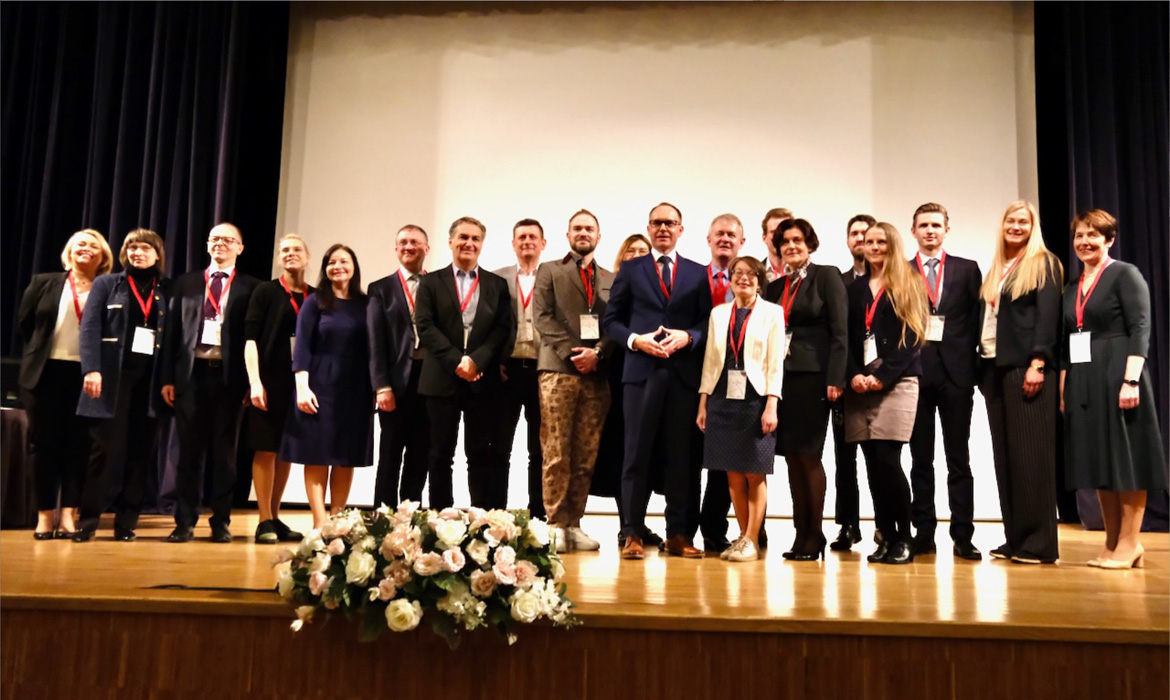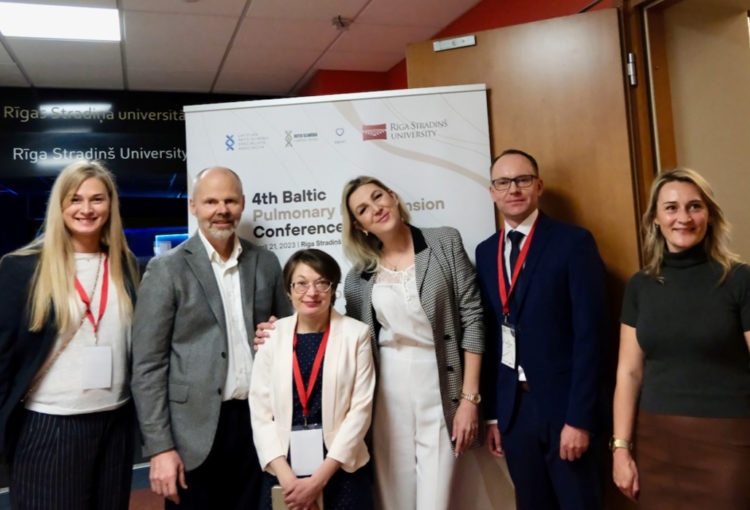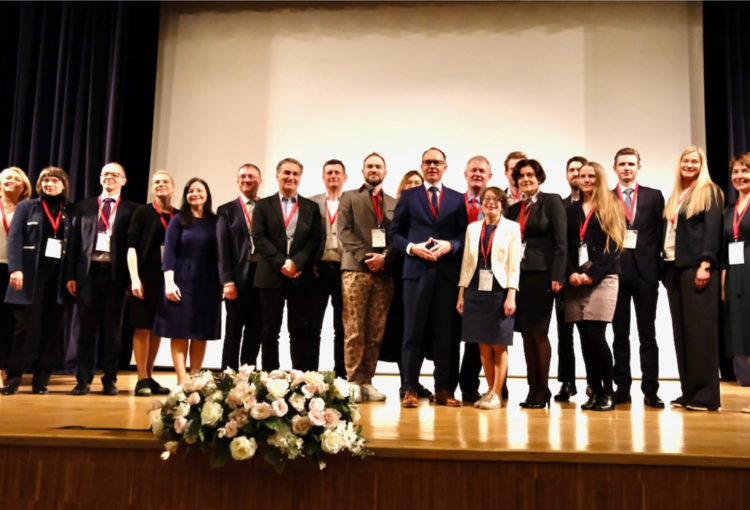Report from the 4th Baltic PH Conference

Riga, Latvia on April 21st
I recently attended the 4th Baltic PH conference held in Riga, Latvia. The conference is held every second year, and they alternate the location for the conferences between Latvia, Lithuania and Estonia. The countries are small, and collaboration in the rare disease area is important for them. They seem to have developed a great collaboration as was evident when PH cases and PH information were shared between them. It was, at times, almost hard to understand, from an outsider like me, from which country the doctors and health personal came from.
Professor Andris Skride from Latvia welcomed a large audience of several hundred people to the conference. It was great to see that a large portion of them were medical students. This is a good sign with regards to PH diagnosis in the Baltic countries in the years to come.
Prof. Skride especially welcomed the two medical guests from outside the Baltics: Prof. Olivier Sitbon from France and Prof. Marcin Kurzyna from Poland. In addition, he stressed that he was also pleased that patients were represented at the conference.
They had given Ieva Plume the honour of opening the conference. She held a nice speech stressing the importance of patient involvement and decision making. The speech was commented on and seemed to be well accepted by the HCPs. Prof. Skride also payed special attention to the first lung transplanted PH patient from Latvia. She had been transplanted in Vienna several years ago, and participated in the conference and seemed to be doing very well.
There were two main themes for this year’s conference: CTEPH and the new guidelines. It turned out that Prof. Kurzyna from Poland had been helping with the first PEA operation in Latvia. They have now operated several patients themselves and they are all doing well. In the report given by one of the HCPs, it was, however, insinuated that maybe they should establish one center for PEA operations in the Baltic due to the low number of yearly cases as a consequence of the small populations in the countries. (Medical papers stress that a center should perform, at least, 50 operations yearly.)
Focus was also put on BPA as an additional treatment method when the cloths are not so readily available in the lungs. It was pointed out the BPA does not require the same level of expertise than PEA, and it seemed like the Baltic countries also had accomplished good results with this treatment option.
Finally, it was stressed that PH medication was needed when operations are not possible and it was pointed out that Riociguat was not reimbursed in all of the three countries due to its high cost.
Ricards Kaulins gave a good and informative presentation about the status of the PH treatment and number of patients in the three Baltic countries. Kaulins is still a medical student as he is in his final sixth year of his education. He has, however, already written scientific publications, done research on BPA and has a clinical coordinator role in a PH clinical study. He answered questions to his presentation from the older professors very well, and will probably be an important PH player in many years to come in the Baltics (and international, as well?).
Prof. Sitbon gave a nice lecture about PH medication. He talked some about current medication, but had a special focus on upcoming PH medication. He especially talked about medication that will be introduced belonging to new pathways, which will, most likely, have great benefits to the PH patients.
Several patient cases were presented at the conference. I was impressed to see how the HCPs related the diagnosis and treatment options directly to the new guidelines. And the risk stratification models were used in order to follow up the patients and make qualified decisions on what treatment options to choose. The expertise level seemed to be high and patients in the Baltics are probably taken care of in both an appropriate and well qualified manner.
Hall Skaara
Project Consultant




